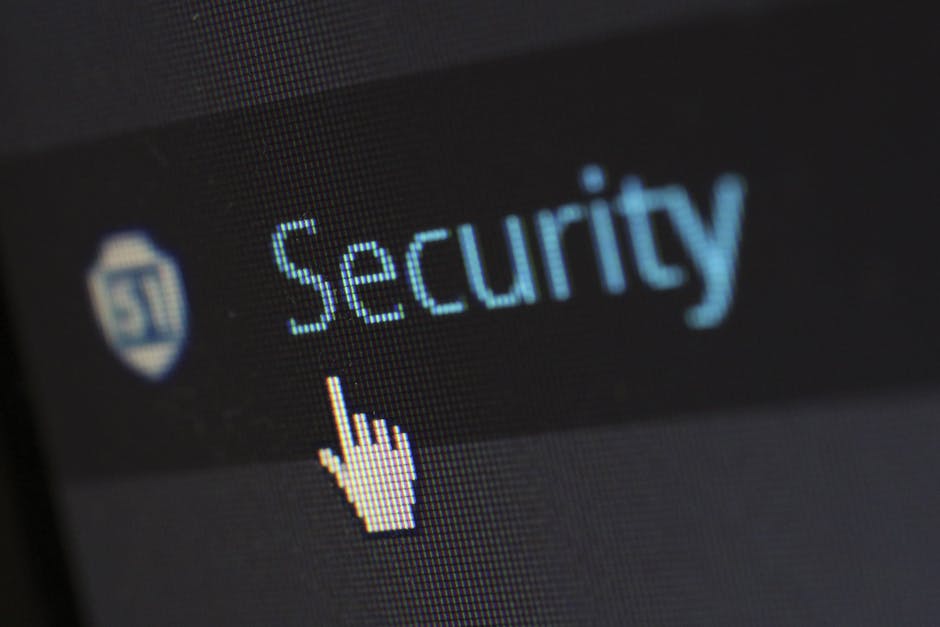In today’s digital age, protecting your online privacy has become increasingly crucial. With the rise of cyber threats and data breaches, it’s essential to take proactive steps to safeguard your personal information and maintain control over your online presence. Whether you’re concerned about protecting your sensitive data from hackers, unwanted advertisements, or malicious tracking, understanding the importance of online privacy is vital for ensuring your safety and security in the vast expanse of the internet.

Protecting Your Online Privacy
I’m committed to helping you safeguard your digital life, and protecting your online privacy is a crucial aspect of that.
- Use Strong Passwords: Create unique passwords for each account, and consider using a password manager to securely store them.
- Enable Two-Factor Authentication: Add an extra layer of security to your accounts by requiring a verification code sent to your phone or email in addition to your password.
- Keep Software Up-to-Date: Regularly update your operating system, browser, and other software to ensure you have the latest security patches and features.
- Be Cautious with Public Wi-Fi: Avoid accessing sensitive information or making financial transactions when connected to public Wi-Fi networks, which may not be secure.
- Use a VPN: Consider using a virtual private network (VPN) to encrypt your internet traffic and protect your data when using public Wi-Fi or accessing sensitive information online.
- Monitor Your Accounts: Regularly check your bank and credit card statements for suspicious activity, and report any unauthorized transactions to your financial institution immediately.
- Use Encryption: Use encryption to protect sensitive files and data stored on your devices, and consider using encrypted messaging apps to communicate with others.
- Limit Personal Data Sharing: Be mindful of the personal data you share online, and limit sharing sensitive information such as your address, phone number, and social security number.
- Use a Firewall: Enable the firewall on your device to block unauthorized access to your computer or network.
- Back Up Your Data: Regularly back up your important files and data to a secure location, such as an external hard drive or cloud storage service.
Additional Tips for Staying Safe Online
Staying safe online requires ongoing effort and attention to detail. Here are some additional tips to help you stay protected:
- Stay Informed: Stay up-to-date with the latest online threats and scams, and be aware of phishing attempts and other tactics used by cybercriminals.
- Use Antivirus Software: Install and regularly update antivirus software to protect your device from malware and other types of viruses.
- Use Secure Browsing Practices: Use secure browsing practices, such as avoiding suspicious links and attachments, and being cautious when downloading software or apps.
- Report Suspicious Activity: Report any suspicious activity or potential security breaches to the relevant authorities, such as your bank or credit card company.
- Take Advantage of Security Features: Take advantage of built-in security features, such as biometric authentication and fingerprint scanning, to add an extra layer of protection to your devices.
Conclusion
Protecting your online privacy requires a combination of common sense, technical knowledge, and ongoing effort. By following these tips and staying informed about the latest online threats, you can significantly reduce your risk of falling victim to cybercrime and keep your digital life safe and secure.
Protecting Your Online Privacy and Security While Exploring New and Unconventional Online Stores
As someone who values their online privacy and security, it’s essential to take proactive steps to safeguard yourself while browsing through new and unconventional online stores.
-
Be Cautious of Phishing Scams
-
Verify Website Authenticity
-
Use Strong Passwords and Two-Factor Authentication
-
Keep Software Up-to-Date
-
Monitor Your Accounts and Credit Reports
-
Use a VPN and Antivirus Software
-
Read Reviews and Check Ratings
-
Use Secure Payment Methods
-
Stay Informed About Online Safety Trends
Phishing scams are common in online shopping, especially when dealing with unfamiliar websites. Be wary of emails or messages asking for sensitive information like passwords or credit card numbers. Legitimate websites won’t ask for this information via email or messaging platforms.
Before making a purchase, verify the website’s authenticity by checking for HTTPS in the URL and looking for trust badges like SSL certificates. These indicators ensure that the website is secure and trustworthy.
Use unique and complex passwords for each account, and consider enabling two-factor authentication (2FA) whenever possible. This adds an extra layer of security, making it more challenging for hackers to access your accounts.
Regularly update your operating system, web browser, and other software to ensure you have the latest security patches. Outdated software can leave you vulnerable to cyber threats.
Regularly check your bank statements and credit reports for any suspicious activity. This helps you detect potential identity theft or unauthorized transactions early on.
Consider using a virtual private network (VPN) to encrypt your internet traffic and protect your data from public Wi-Fi networks. Additionally, install reputable antivirus software to scan for malware and other online threats.
Research the online store’s reputation by reading reviews from other customers and checking ratings from trusted review platforms. This helps you gauge the store’s reliability and customer service.
Opt for secure payment methods like PayPal or credit cards, which offer buyer protection and chargeback policies. Avoid using cash or wire transfers, which can leave you vulnerable to scams.
Stay up-to-date with the latest online safety trends and best practices by following reputable sources and cybersecurity experts. This helps you stay ahead of emerging threats and stay safe online.
By following these guidelines, you can enjoy a safer and more secure online shopping experience while exploring new and unconventional online stores.

Protecting Your Online Privacy
I’m committed to helping you safeguard your digital footprint, and there are several companies that share my passion for online security.
- Blind Browser: As a pioneer in anonymous browsing, I offer resources, tips, and tools to protect your online identity. My platform covers secure browsing practices, privacy tools, and the latest in internet security trends.
- ExpressVPN: This reputable VPN service ensures your online activities remain private and secure, masking your IP address and encrypting your internet traffic.
- NordVPN: Another leading VPN provider, NordVPN offers robust encryption, a strict no-logs policy, and a vast network of servers to keep your online presence hidden.
- Private Internet Access (PIA): PIA is a popular VPN choice among online enthusiasts, offering advanced features like split tunneling and a kill switch to safeguard your connection.
- Tor Browser: Developed by the Tor Project, this free and open-source browser focuses on anonymity, routing your internet traffic through a decentralized network of volunteer-operated servers.
- ProtonMail: This secure email service uses end-to-end encryption to protect your communications, ensuring that only you and the intended recipient can access the contents of your emails.
- Signal: A highly-regarded messaging app, Signal employs end-to-end encryption to safeguard your conversations, making it an excellent choice for sensitive communication.
When choosing a company to protect your online privacy, consider factors like encryption methods, server locations, and logging policies. Remember, a reliable VPN or anonymous browsing solution is just the beginning – stay informed about the latest online threats and best practices to maintain a secure digital presence.

Protecting Your Online Presence
I’m committed to safeguarding my online presence, and I recommend taking proactive steps to shield yourself from potential threats.
-
Secure Browsing Practices
Always use strong, unique passwords for every account, and consider enabling two-factor authentication whenever possible.
- Use a reputable password manager to securely store and generate complex passwords.
- Avoid using public Wi-Fi networks for sensitive activities, and opt for virtual private network (VPN) services when necessary.
-
Privacy Tools and Software
Explore various tools and software solutions designed to enhance online security and anonymity.
- Utilize ad blockers and anti-tracking extensions to minimize data collection and reduce targeted advertising.
- Consider installing antivirus software and firewall protection to defend against malware and unauthorized access.
-
Digital Footprint Management
Maintain control over your online identity by monitoring and managing your digital footprint.
- Regularly review and update your social media profiles to ensure accuracy and consistency.
- Be cautious when sharing personal information online, and limit the visibility of sensitive details.
By implementing these measures, you can significantly reduce the risk of online threats and maintain a safer, more secure digital presence.
Additional Resources:
Staying Safe Online
I’m committed to protecting my online presence and I want to share three essential ways to stay safe online.
-
Be Cautious with Passwords
Create strong, unique passwords for each account and avoid reusing them. Consider using a password manager to securely store and generate complex passwords.
When choosing a password manager, look for reputable options like LastPass (LastPass) or 1Password (1Password), which offer robust security features and easy-to-use interfaces.
-
Verify Website Security
Before entering sensitive information on a website, check its URL for “https” and a lock icon in the address bar. This indicates a secure connection and helps prevent hackers from intercepting your data.
Additionally, be wary of suspicious emails or messages asking for personal info or login credentials. Legitimate companies won’t ask you to verify sensitive details via email or phone.
-
Keep Software Up-to-Date
Regularly update your operating system, browser, and other software to ensure you have the latest security patches and features.
Enable automatic updates whenever possible, and consider using a reputable antivirus program like Norton (Norton) or McAfee (McAfee) to detect and remove malware.
By following these simple steps, you can significantly reduce your risk of falling victim to online threats and enjoy a safer browsing experience.

Protecting My Identity Online
I’m committed to safeguarding my digital footprint, and I’ve identified several essential steps to take.
-
1. Use Strong, Unique Passwords
-
2. Enable Two-Factor Authentication (2FA)
-
3. Monitor Accounts and Credit Reports
-
4. Be Cautious with Public Wi-Fi
-
5. Keep Software Up-to-Date
-
6. Use a Virtual Private Network (VPN)
Create complex passwords for all accounts, avoiding easily guessable information like names, birthdays, or common words. Consider using a password manager to securely store and generate unique passwords.
Activate 2FA whenever possible, adding an extra layer of security beyond just passwords. This can include codes sent via SMS, authenticator apps, or biometric verification.
Regularly check account statements and credit reports for suspicious activity, reporting any discrepancies promptly. Consider setting up alerts for unusual transactions or changes.
Avoid accessing sensitive information or making financial transactions over public Wi-Fi networks, which may be vulnerable to hacking. Opt for secure, encrypted connections whenever possible.
Regularly update operating systems, browsers, and other software to ensure you have the latest security patches and features.
Consider using a VPN to encrypt internet traffic, protecting your data from interception or eavesdropping when using public Wi-Fi or unsecured networks.
By implementing these measures, I can significantly reduce the risk of identity theft and maintain a safer online presence.




